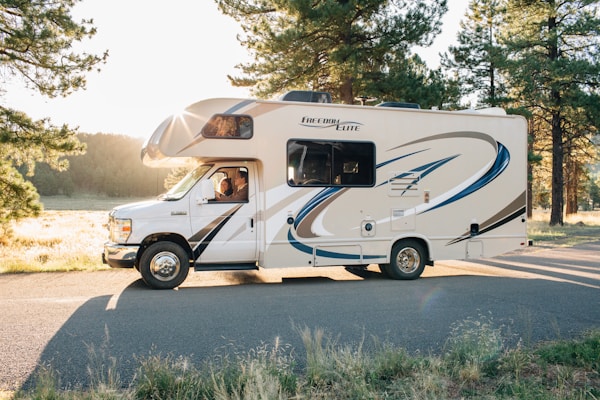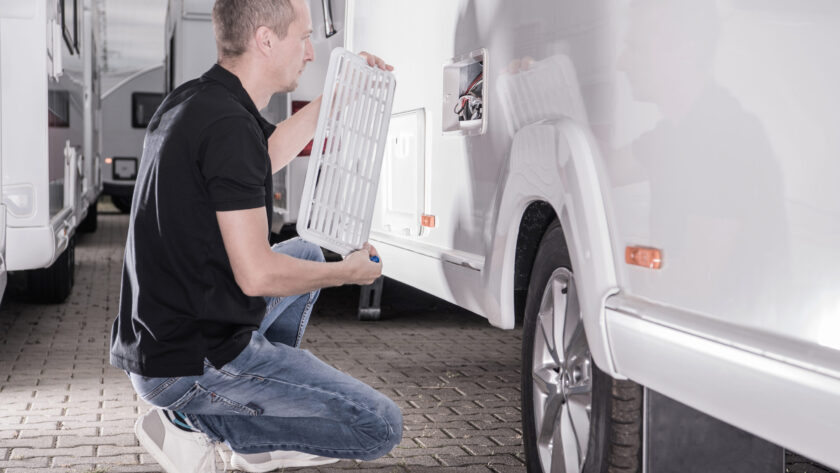As you embark on the journey of purchasing a recreational vehicle (RV), it is crucial to familiarize yourself with the intricacies of RV warranties. Knowing what these warranties offer, the types available, common exclusions, and how to maintain your warranty can save you from unanticipated expenses and ensure worry-free travels in your new home-on-wheels. In this article, we will provide a comprehensive guide to understanding the basics of RV warranties.
Types of RV Warranties

When purchasing an RV, you will encounter two primary types of warranties: the manufacturer’s warranty and extended warranties. The manufacturer’s warranty typically comes with the purchase of a new RV and covers defects in materials or workmanship for a specific period. These warranties vary in coverage length and terms, with most offering protection for one to three years.
Extended warranties, also known as service contracts, are an additional layer of protection that kicks in once the manufacturer’s warranty expires. Offered by third-party companies, these warranties cover repair costs for mechanical breakdowns that occur due to regular wear and tear during the warranty period. Extended warranties provide peace of mind by helping RV owners manage the cost of unexpected repairs that can arise from the complex systems found in modern recreational vehicles.
It’s essential to carefully read and understand the terms and conditions of your selected warranty, as different warranties provide varying levels of coverage. Some cover specific components, while others offer more comprehensive protection for virtually all aspects of the RV. Thoroughly researching the options available and choosing the right warranty coverage for your specific vehicle and travel needs will ensure maximum protection.
Common Exclusions in RV Warranties

When investing in an RV warranty, it’s equally important to understand what isn’t included in the coverage. Typically, warranties do not cover damage caused by accidents, improper maintenance, natural disasters, or misuse of the vehicle. Cosmetic damage, aftermarket modifications, or wear and tear items like tires, batteries, and upholstery are also generally excluded. Knowing these exclusions can help RV owners avoid unexpected repair costs and maintain their warranty coverage.
In addition to the aforementioned exclusions, some RV warranties may not cover certain brands, models, or components. It’s crucial to verify if your specific RV or its essential parts are eligible for coverage before finalizing the contract. Asking questions and clarifying any doubts with the warranty provider can help ensure you are fully informed about the warranty’s coverage and limitations.
Furthermore, certain warranties might require the RV owner to perform specific maintenance tasks or adhere to recommended service intervals to maintain coverage. Failure to meet these requirements could void the warranty, leaving the owner liable for any repair costs. To avoid such scenarios, keep detailed records of all maintenance and work done on the RV to demonstrate proper care and adherence to the warranty terms.
Maintaining Your RV Warranty
Proper maintenance can extend the lifespan of your RV and help you get the most out of your warranty coverage. Regularly performing basic maintenance tasks, such as oil changes, tire rotations, and cleaning, ensures your vehicle stays in peak condition and meets the warranty requirements. Following the recommended maintenance schedule outlined in your RV owner’s manual is essential for keeping your warranty intact.
In addition to adhering to a regular maintenance schedule, keeping thorough records of all work done on the RV is critical. These records should include receipts, invoices, and any other proof of services performed. In the event of a warranty claim, this documentation will prove essential in demonstrating that the RV has been adequately cared for throughout the warranty period.
Finally, when choosing an authorized repair facility for any work, make sure they have experience working on RVs similar to yours. The expertise of qualified technicians will ensure the work is performed correctly and maintains your warranty coverage.
Whether you want to travel the country visiting national parks or just enjoy vacations out on the open road, an RV is a great way to do it. However, understanding the basics of RV warranties is an essential aspect of owning and caring for a recreational vehicle. This knowledge will provide insights into what coverage entails, exclusions, and how to maintain and make the most of the warranty protection available. Being well-informed about your RV warranty will allow you to rest easy, knowing your investment is protected during your incredible adventures on the open road.



